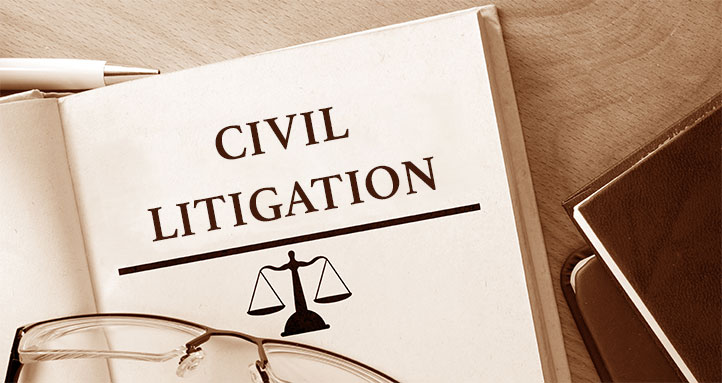- Email: info@lawyerseba.com
- Hotline: +8801972770280
- bKash Number: +8801972770280
Civil litigation is a legal process that involves resolving disputes between individuals, businesses, or other entities through the court system. Unlike criminal cases, which involve the government prosecuting individuals for violating the law, civil litigation typically deals with private matters where one party (the plaintiff) seeks a legal remedy or compensation from another party (the defendant) for perceived harm, loss, or breach of a legal duty. Civil litigation encompasses a wide range of legal issues and can take various forms, from small claims court cases to complex, high-stakes lawsuits.
Here are key aspects of civil litigation:
-
Filing a Lawsuit: The civil litigation process begins when a plaintiff files a complaint in court, outlining the allegations and claims against the defendant. The complaint specifies the legal basis for the lawsuit and the remedies sought, such as monetary damages or injunctive relief.
-
Pleadings: After the complaint is filed, the defendant has the opportunity to respond with an answer or a motion to dismiss the case. The parties may engage in further pleadings, including counterclaims, cross-claims, and amended complaints, as the case progresses.
-
Discovery: The discovery process allows both parties to gather evidence to support their case. This may involve requesting documents, conducting depositions (sworn statements from witnesses), and interrogatories (written questions), as well as using expert witnesses to analyze and present evidence.
-
Pretrial Motions: Prior to trial, either party may file pretrial motions to request the court's intervention on specific issues. These motions can address matters like summary judgment (asking the court to rule on the case without a trial) or motions to exclude evidence.
-
Settlement and Alternative Dispute Resolution (ADR): Many civil cases are resolved through settlement negotiations or alternative dispute resolution methods, such as mediation or arbitration, before going to trial. A negotiated settlement can save time and money for both parties.
-
Trial: If the case proceeds to trial, the parties present their arguments, witnesses, and evidence before a judge or jury. The trial process may be lengthy and involves opening statements, examination of witnesses, presentation of evidence, and closing arguments.
-
Verdict: After hearing the case, the judge or jury delivers a verdict, which can include a judgment for the plaintiff, a judgment for the defendant, or a partial judgment. The verdict may also specify any damages awarded.
-
Appeals: If either party is dissatisfied with the verdict, they may have the right to appeal the decision to a higher court, seeking a review of legal errors or the application of the law.
-
Enforcement of Judgments: If the court awards monetary damages to the plaintiff, the defendant is obligated to pay. If the defendant does not comply voluntarily, the plaintiff may take legal steps to enforce the judgment, such as garnishing wages or seizing assets.
-
Types of Civil Cases: Civil litigation encompasses a wide array of cases, including personal injury, breach of contract, property disputes, employment disputes, family law matters, and more. The rules and procedures may vary depending on the specific type of case and jurisdiction.
Civil litigation plays a critical role in resolving disputes and providing individuals and businesses with a mechanism to seek redress for grievances and legal rights. It is designed to ensure that parties are afforded a fair and orderly process to resolve their disputes, whether through negotiation, settlement, or adjudication by a court. Effective legal representation is often essential in navigating the complexities of civil litigation and advocating for the best outcome for the client.
Winning a civil suit, whether as a plaintiff or as a defendant, requires lots of studies and scrutiny of the facts and laws. Our Civil Litigation experts scrutinize the suit and provide consultation to the clients with utmost care and confidentiality. We find out the best possible remedies of a lawsuit and give proper guidance to our clients from the very beginning of a case to the last stage of the case.

